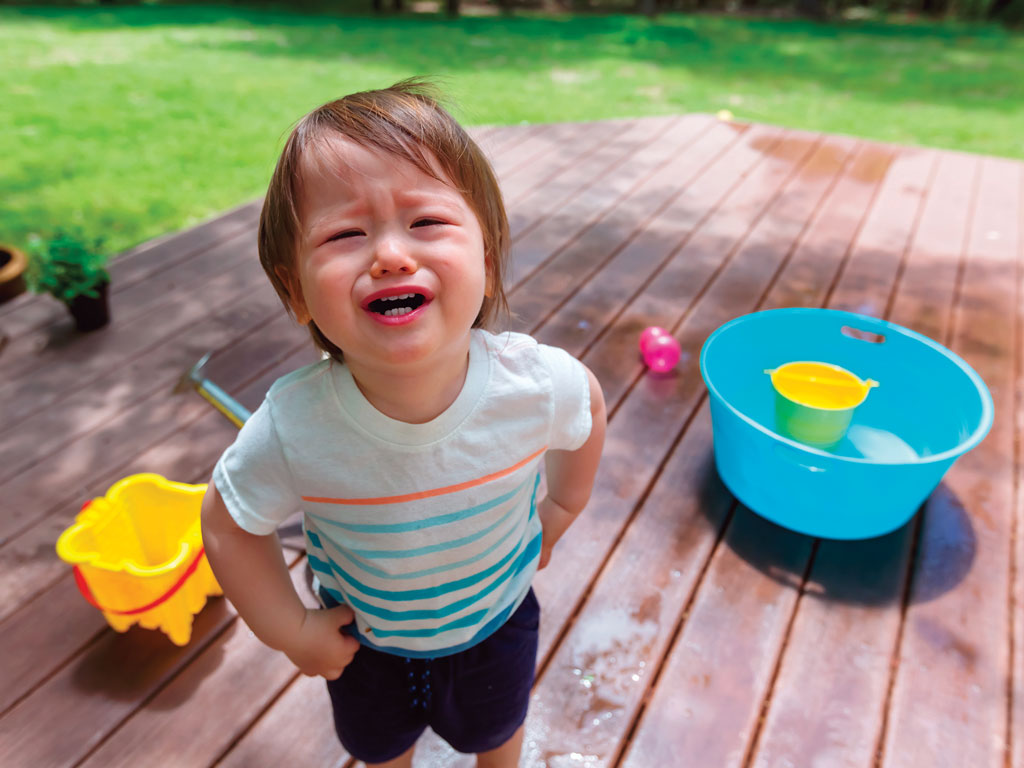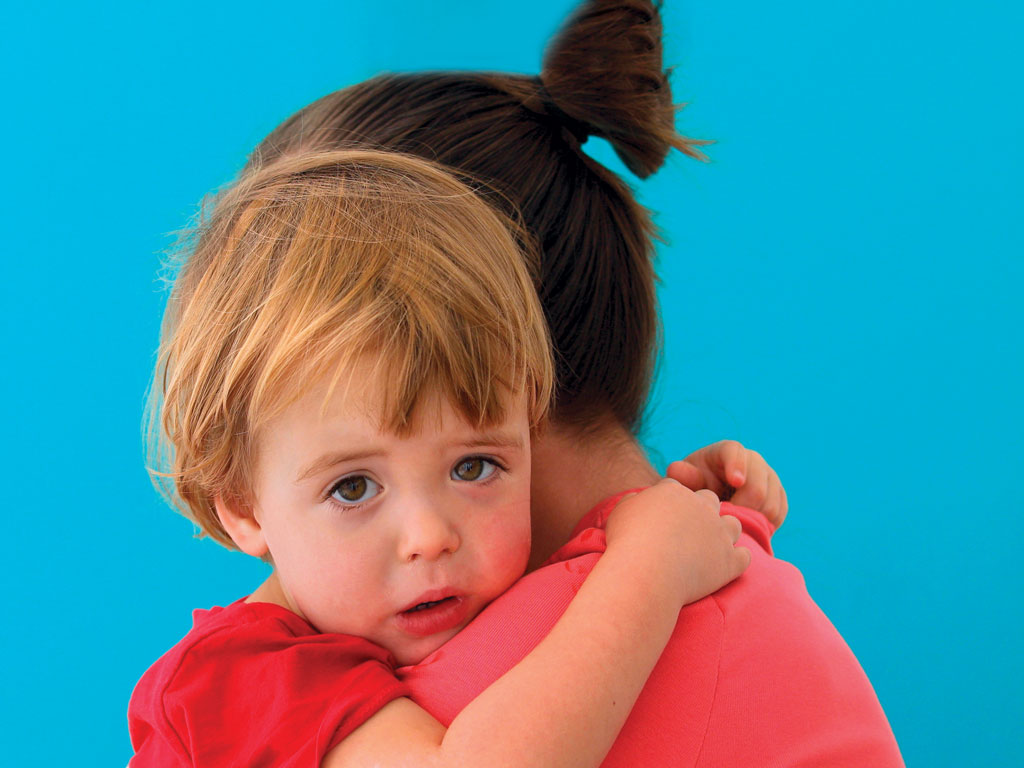by Karen K.C. Gibson
Do these conversations sound familiar: “NO! I won’t go, and you can’t force me!” “Shut up! You don’t understand me and never will!” “I hate you! I wish I had a different mom/dad!” Why does it feel like the sweet baby we once carried in our arms, cherishing their wrinkly toes, pure innocence, and intoxicating newborn scent, mysteriously transforms into a wild child?
When children have emotional outbursts, these may be signs that they haven’t yet developed the skills to cope with feelings like frustration, anxiety, and anger. Handling big emotions in a healthy and mature way requires practiced skills, including impulse control, emotional regulation, problem-solving, delaying gratification, negotiating, communicating wishes and needs, and understanding appropriate behavior. Children often act out when they are feeling overwhelmed, so it may be necessary to address underlying issues such as academic struggles or changes in the family dynamic.

Tantrums and other kinds of acting out are often a normal and healthy part of childhood. As children crave independence, they test boundaries, develop skills and opinions, and explore the world around them. While some acting out is normal as children learn to express themselves, frequent or severe outbursts can put a strain on the parent-child relationship. Consistent misbehavior can lead to daily frustration and stress for both the child and the parent, as well as potentially impacting the rest of the family.
Parents often respond to tantrums by comforting children or giving in to their requests. Unfortunately, this can reinforce tantrum behavior and result in a cycle, and they might have trouble developing more sophisticated ways to manage their feelings.
Sometimes, parents feel that tantrums are how their children manipulate them into getting what they want, but according to the Mayo Clinic, “Young children don’t plan to frustrate or embarrass their parents. For most toddlers, tantrums are a way to express frustration. For older children, tantrums might be a learned behavior. If you reward tantrums with something your child wants, or you allow your child to get out of things by throwing a tantrum, the cycle is likely to continue.”
Here are some tips on how to reduce tantrums:
1. Be consistent. Create a daily routine so your child knows what to expect and stick to it as much as possible. For example, if they know that they are expected to brush their teeth before bed every night, they are more likely to do it without resistance. Try to incorporate other activities for bedtime like reading a book or taking a bath. This will signal to your child that it’s time to wind down and get ready for sleep.

2. Plan ahead. If you expect to wait in line when running errands, bring a small toy or snacks to occupy them. Try to manage their expectations by letting them know that there may be some waiting involved. Overwhelmed, hungry or tired children tend to lose their temper, causing more stress and possibly ruining outings. Also, setting ground rules such as no running beforehand is better than waiting for them to do it.
3. Let your child make appropriate choices. Reduce the amount of times you tell your child “no.” Children feel they have a sense of control when they are given choices. Give them opportunities to choose their outfits, snacks, or activities. Asking them to participate in small decisions empowers them, which will improve the family dynamic in the long run.
4. Praise good behavior. Give children extra attention when they behave. Hugging and complimenting them if they follow directions or meet your expectations encourages cooperation and helps them feel valued and appreciated. Simple gestures such as a smile, a high-five, or a verbal compliment can go a long way in reinforcing good behavior.

5. Avoid situations likely to trigger tantrums. If you give children toys or engage in activities that are too advanced, be prepared for possible frustration. Try to avoid areas of temptation which may result in your child begging for toys or treats. If your child gets overstimulated from loud noises, try to choose places that offer quick service and a relaxed atmosphere to prevent inappropriate behavior in restaurants.
6. Resist the temptation to give in to tantrums. Giving in teaches children that tantrums work and can lead to even more intense outbursts in the future. However, it is important to remember that offering support and comfort when they are genuinely overwhelmed is not the same as giving in to a tantrum.

7. Remain calm. Harsh responses tend to escalate a child’s frustration. By staying calm, you’re modeling positive behavior. Teaching your child to pause, close their eyes, and take three deep breaths while role modeling this calming technique often automatically reduces frustration.
8. Ignore negative behavior and praise positive behavior. Choose your battles by letting go of minor misbehavior. Negative attention like reprimanding may reinforce negative actions. When your child is able to avoid throwing a tantrum from their usual triggers, try to make clear which behavior is being praised; instead of saying, “good job,” try “good job calming down.”
9. Use consistent consequences. Children need to know what specific consequences to expect for negative behaviors, such as time outs, as well as the specific rewards for positive behaviors, like extra time to play. Overall, consistency is key.
10. Wait until the meltdown is over before engaging in conversation. Take some time for everyone to cool off. Don’t try to reason with a frustrated child. Encourage negotiating skills when you and your child are calm and ready to have a peaceful interaction.
Teaching children how to regulate their emotions involves helping them recognize and understand their feelings, identifying triggers that lead to negative emotions, and developing strategies to manage those feelings. Learning how to regulate emotions is essential for children to handle and respond to situations appropriately, accept disappointment, and prepare them for adulthood. Mastering mayhem is a parenting superpower that requires practice and patience and will help your child build healthier relationships throughout their life.





